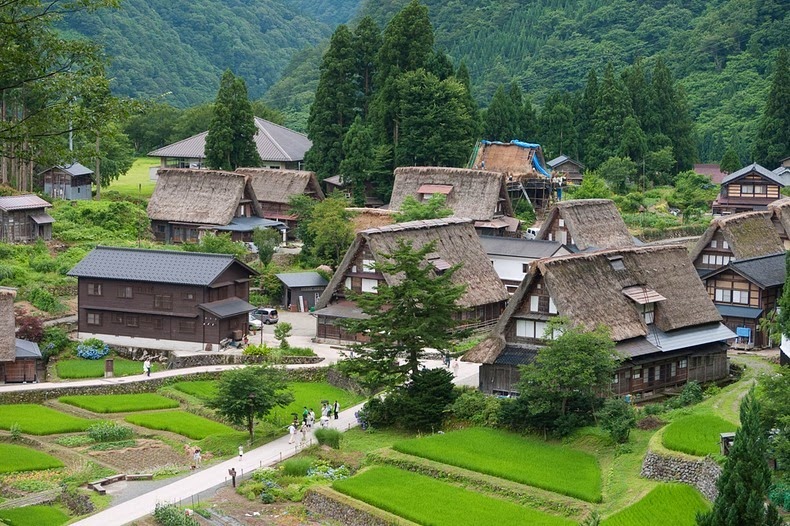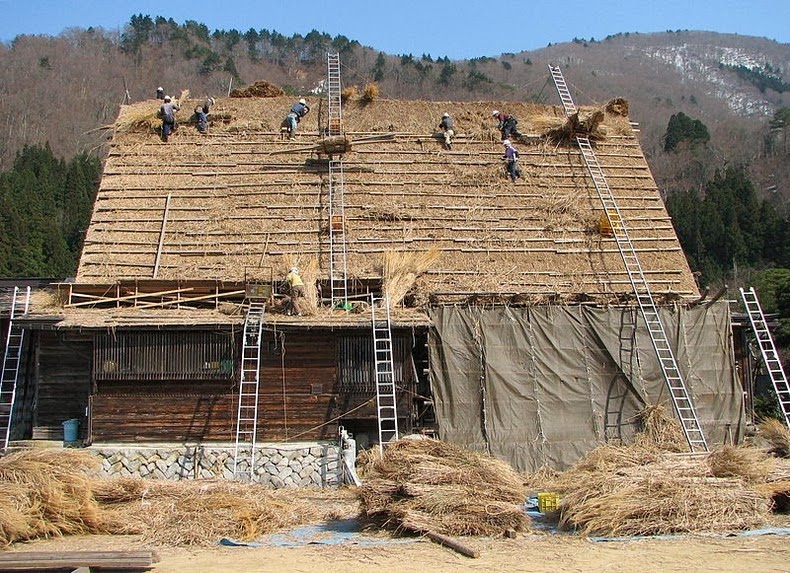Shirakawa and Gokayama are two Japanese villages located in Gifu Prefecture and Toyama Prefecture, respectively, known for their traditional gassho-zukuri farmhouses, many of which are more than 250 years old.
Gasshō-zukuri means "prayer-hands construction" and is a style characterized by a thatched and steeply slanting roof resembling two hands joined in prayer. Shirakawa and Gokayama are two of the snowiest places in the world, and gasshō-zukuri homes were created because this climate. The design is exceptionally strong and, in combination with the unique properties of the thatching, allow the houses to withstand and shed the weight of the region's heavy snowfalls in winter.
The traditional architectural style survived for hundreds of years due to the region's secluded location in the upper reaches of the Shōgawa river – a region that attracted little attention since the 12th century when it was settled by the survivors from the Taira (Heike) clan which was virtually wiped out by the Minamoto (Genji) clan in a brutal battle in 1185. The villages’ lifestyle and culture remained practically unchanged for many years after the majority of the country had modernized. Many of the houses here easily surpass 300 years in age, and the oldest is said to have been built some 400 years ago.
The houses are large, typically with three to four storeys encompassed between the low eaves, and historically intended to house large extended families and a highly efficient space for a variety of industries. The upper storeys of the gasshō houses were usually set aside for sericulture, while the ground floor were often used for the production of nitre, one of the raw materials needed for the production of gunpowder. The first floor held the living quarters. Heat from this floor, filled with people and activity, rises up heating the upper floors where silkworms are reared. This allowed the farmers to raise silkworms even in the harsh winters. The requirement of large enclosed spaces for silkworm beds and storage of mulberry leaves was an important factor in the development of the gassho -style house
The region received worldwide attention they were designated a UNESCO World Cultural Heritage Site in December 1995.


Sources: Wikipedia, Japan National Tourism Organization, UNESCO, Lonely Planet































Visited them this winter. Waaaaaay too many people and gift shops. All(!) places worth of taking pictures are shown above. There similar villages around the valley and in the neighboring prefecture.
ReplyDeleteWas there back in 2004. Great place!
ReplyDelete